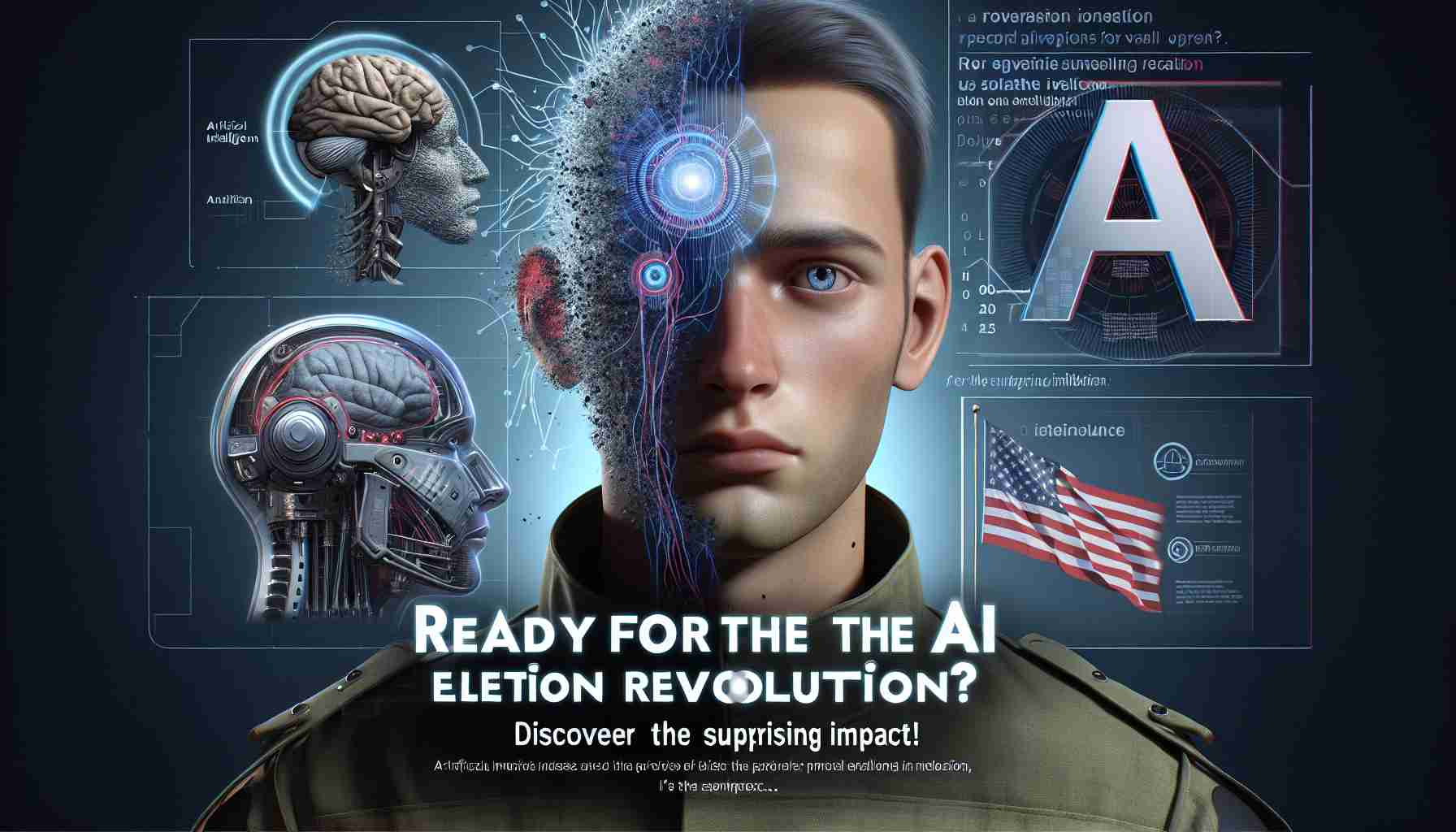A Pivotal Year in Global Voting
As we progress through 2024, the world has witnessed its largest electoral event ever, with a staggering 3.7 billion eligible voters participating across 72 countries. This year not only marks an unprecedented electoral engagement but also heralds the introduction of AI in political campaigns, posing both risks and opportunities for democracies.
A recent Pew survey revealed that the majority of Americans are skeptical about the impact of AI, anticipating its application to be detrimental rather than beneficial during the elections. Despite these concerns regarding misinformation and deepfakes, AI has demonstrated constructive uses.
One remarkable application of AI is in language translation. Campaigns across diverse nations, including Japan and India, utilized AI to ensure political messages reached all constituents. Furthermore, U.S. politicians are leveraging AI chatbots to engage voters, showcasing a shift toward interactive campaigning.
In Japan, an independent candidate utilized an AI avatar to answer thousands of voter inquiries, highlighting the potential of technology in personalizing politics. Political fundraising has also transformed, with AI systems aiding in crafting targeted messages to donors.
While AI-generated misinformation did pose challenges, it was not as pervasive as feared. Sophisticated moderation tools have been developed, helping to maintain the integrity of the electoral information landscape, proving that although the technology is complex, its responsible use can empower democracy.
2024 Elections: How AI is Shaping Global Democracy
A Pivotal Year in Global Voting
The year 2024 stands out as a significant moment in electoral history, with a record-breaking 3.7 billion eligible voters participating across an impressive 72 countries. This remarkable level of engagement not only underscores the importance of democratic processes worldwide but also introduces a key player in modern campaigns: Artificial Intelligence (AI).
How AI is Transforming Political Campaigns
AI’s role in political campaigns encompasses both challenges and opportunities. A recent Pew survey indicates that a majority of Americans harbor skepticism regarding AI’s impact on elections, fearing it may do more harm than good. Concerns center around topics like misinformation, deepfakes, and the overarching ethical implications of AI technology in politics. However, as the technology evolves, its constructive applications offer a promising counterpoint.
# AI in Language Translation
One of the groundbreaking uses of AI has been in language translation, which is paramount in ensuring that political messages resonate across diverse demographic landscapes. Countries such as Japan and India have effectively employed AI to facilitate communication between candidates and their constituents, breaking down language barriers that could hinder political understanding.
# Voter Engagement through AI Chatbots
In the United States, the rise of AI chatbots is revolutionizing voter engagement. Political candidates are increasingly utilizing these interactive tools to connect with voters on a personal level. These chatbots can provide instant responses to inquiries, gather feedback, and even drive voters to the polls, marking a significant shift towards more participatory campaigning.
# Innovative Use of AI Avatars
In an unprecedented move, an independent candidate in Japan deployed an AI avatar to handle thousands of voter queries, showcasing the potential of technology to personalize the political experience. This innovation not only demonstrates AI’s capabilities in streamlining communication but also highlights a growing trend towards digital engagement in politics.
Transformations in Political Fundraising
The landscape of political fundraising is also experiencing a transformation, powered by AI’s ability to generate tailored messages that appeal to specific donor preferences. This targeted approach enables campaigns to efficiently allocate resources and maximize contributions, significantly shifting traditional campaign strategies.
Challenges of AI-generated Misinformation
While AI-generated misinformation raised concerns among experts and the public alike, the reality has not been as dire as some predicted. Advanced moderation tools are emerging to combat these challenges by maintaining the integrity of information shared during the electoral process. Such technologies aid in ensuring that while AI is a complex field, its responsible application can ultimately support democratic engagement rather than undermine it.
Trends and Insights
The integration of AI into political processes reflects broader trends in technology adoption across various industries. As we move further into the digital era, the conversations surrounding AI and its implications in sectors like politics will likely intensify.
Market Analysis and Future Predictions
Looking ahead, the political landscape will continue to evolve with AI’s involvement. Political campaigns will increasingly rely on data analytics to craft messages that resonate with voters. This trend points to a future where AI-driven insights could significantly enhance electoral strategies.
Security Aspects
As AI technologies become more entwined with political campaigning, concerns about security and the potential for abuse grow. It is vital for stakeholders to implement strong ethical guidelines and security measures to safeguard data and maintain public trust in democratic processes.
Conclusion
2024 is poised to be a defining year not just for voters but for the role of technology in shaping democracy. As nations navigate the complexities introduced by AI, the dialogue around its use will be crucial in ensuring that it serves as a tool for empowerment rather than division. The future of global politics will likely be inextricably linked with technological innovation, ushering in both challenges and exciting possibilities for democracies worldwide.
For more information on electoral trends and technological impacts in politics, visit Pew Research for insights and studies.
